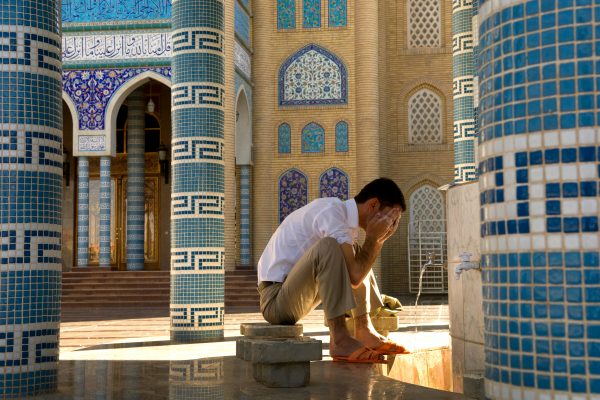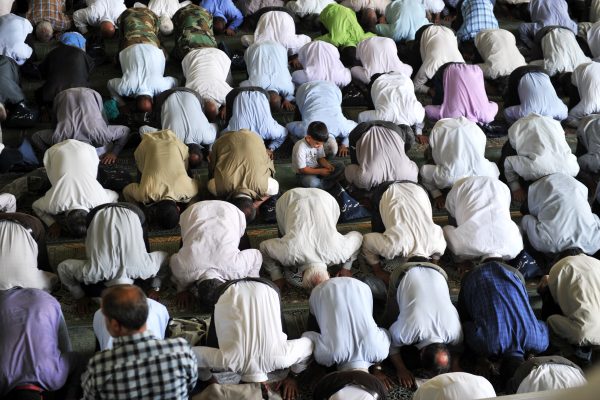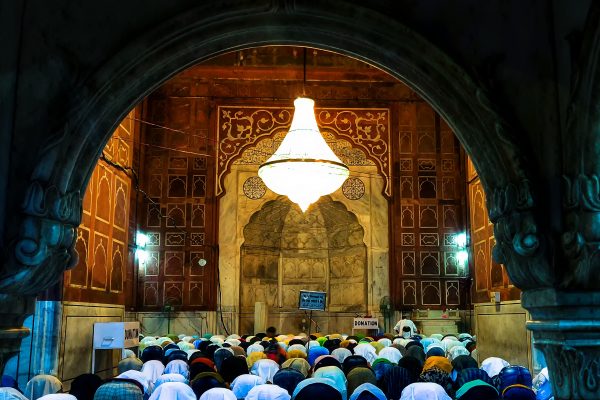Within the Quran, there are numerous verses calling for peace, pluralism and coexistence.
Within the Quran, there are numerous verses calling for peace, pluralism and coexistence.
With attacks occurring every now and then, Muslims have topped the list of those considered persona non-grata (an unacceptable or unwelcome person) pretty much everywhere, let alone the Western World. Needless to say, they also blatantly accuse them of spreading an epidemic of terrorism globally. However, to change this segregationist stereotyping can be a heavy burden for Muslims, especially after knowing that some societies have deeply entrenched views about them. For many years, such societies have developed pejorative views on Islam which unfortunately accumulated to create a token of infamy; Islamophobia.
This concept has been put forward by critics who have misinterpreted Quranic verses in order to ‘shed light’ on the ‘atrocities’ taught by Islam for the millions of its followers out there. Nowadays, much of the criticism is founded on a preposterous interpretation of what is referred to as the Sword Verse:
“And when the sacred months have passed, then kill the polytheists wherever you find them and capture them and besiege them and sit in wait for them at every place of ambush. But if they should repent, establish prayer, and give zakat, let them [go] on their way. Indeed, Allah is Forgiving and Merciful.” [Surat Al-Tawbah: 5]
Critics claim that this verse orders Muslims to kill polytheists wherever and whenever they find them. However, this passage has always been taken out of context and misquoted. If it were to be read from the beginning and up until the 14th verse, this Chapter tells us about a treaty that Pagan Arabs broke with Muslims. Consequently, that verse was only aimed at a certain historical event that happened during the lifetime of the Prophet Muhammad (peace be upon him) and nothing more. In addition to that, the ninth verse of the same Surat provides evident proof that the Pagans are the ones behind starting that war. Another unfounded allegation used by the critics of Islam that has also been misinterpreted to allege that Muslims need to murder non-Muslims is the following:
“[Remember] when your Lord inspired to the angels, “I am with you, so strengthen those who have believed. I will cast terror into the hearts of those who disbelieved, so strike [them] upon the necks and strike from them every fingertip.” [Surat Al-Anfal: 12]
This is another example that people should look for the historical background of certain incidents that happened at the time of the Prophet Muhammad (peace be upon him). After 13 years of persecution, torture and murder, the Muslims fled from the city of Mecca and found refuge in the city of Madinah. Nevertheless, Pagans from Mecca followed Muslims with an army of about 1000 in order to kill them. This verse thus reveals details about what happened and what is known as the Battle of Badr and did also order Muslims to fight for and defend their lives and faith.
But rather than rolling this boulder uphill, sometimes it takes a small group of Muslims to, as Margaret Mead, the great anthropologist, said, shake things up for the better of all! Many known scholars have chosen to approach and deeply understand the true essence of Islam without blindly accepting prejudgements due to the fact that they alter the truth that needs no defenders to plad on its behalf.
On October 7th, 1887, the canon of York Isaac Taylor read the following statement before the Church Congress at Wolverhampton: “It [Islam] replaced mokinshness by manliness. It gives hope to the slave, brotherhood, and recognition of the fundamental facts of human nature.” The Indian politician and poet Sarojini Naidu also unfolded yet another genuine, bold and objective observation on Islam: “Sense of justice is one of the most wonderful ideals of Islam, because as I read in the Quran I find those dynamic principles of life, not mystic but practical ethics for the daily conduct of life suited to the whole world.”
Islam isn’t about Holy Wars (Jihad) or beheadings like portrayed by extremists who claim that they are re-establishing an Islamic State. The religion of Peace is farther than that. It promotes gender equality which is portrayed by the Messenger of Islam Muhammad (peace be upon him) who had a concern for female infanticide. He is reported to have once said: “Whoever has a daughter and he does not bury her alive, does not insult her and does not favor his son over her, Allah (swt) will enter him into Paradise.”
In addition to that, Islam does insist on the obligation of Universal Equality. This argument can be seen in the following verse:
“O mankind, We have created you from a male and female, and made you into races and tribes, so that you may identify one another. Surely the noblest of you, in Allah’s sight, is the one who is most pious of you. Surely Allah is All-Knowing. All-Aware.” [Surat Hujurat: 13]
A lot of teachings have been fully integrated and are to be followed and they vary from liberty of marriage, restraint and justice, prayers, zakat (alms) up until daily general codes of conducts that can be summed up by the saying of Prophet Muhammad (Peace be upon him): “Allah has forbidden you (1) to be undutiful to your mothers (2), to withhold (what you should give) or (3) demand (what you do not deserve), and (4) to bury your daughters alive. And Allah has disliked that (A) you talk too much about others (B), ask too many questions (in religion), or (C) waste your property.” [Sahih Bukhari, Volume 8, Book 73, Number 6]
The previous teachings and perspectives provide a stark contrast of the repetitive, subjective media coverage of Islam strife characterized by acts of terrorism while obscuring the fact that within Quran are numerous verses calling for peace, pluralism and coexistence.
- “Invite to the way of your Lord with wisdom and good instruction, and argue with them in a way that is best. Indeed, your Lord is most knowing of who has strayed from His way, and He is most knowing of who is [rightly] guided.” [An-Nahl:125]
- “Indeed, [O Muhammad], you do not guide whom you like, but Allah guides whom He wills. And He is most knowing of the [rightly] guided.” [Al-Qasas: 56]









